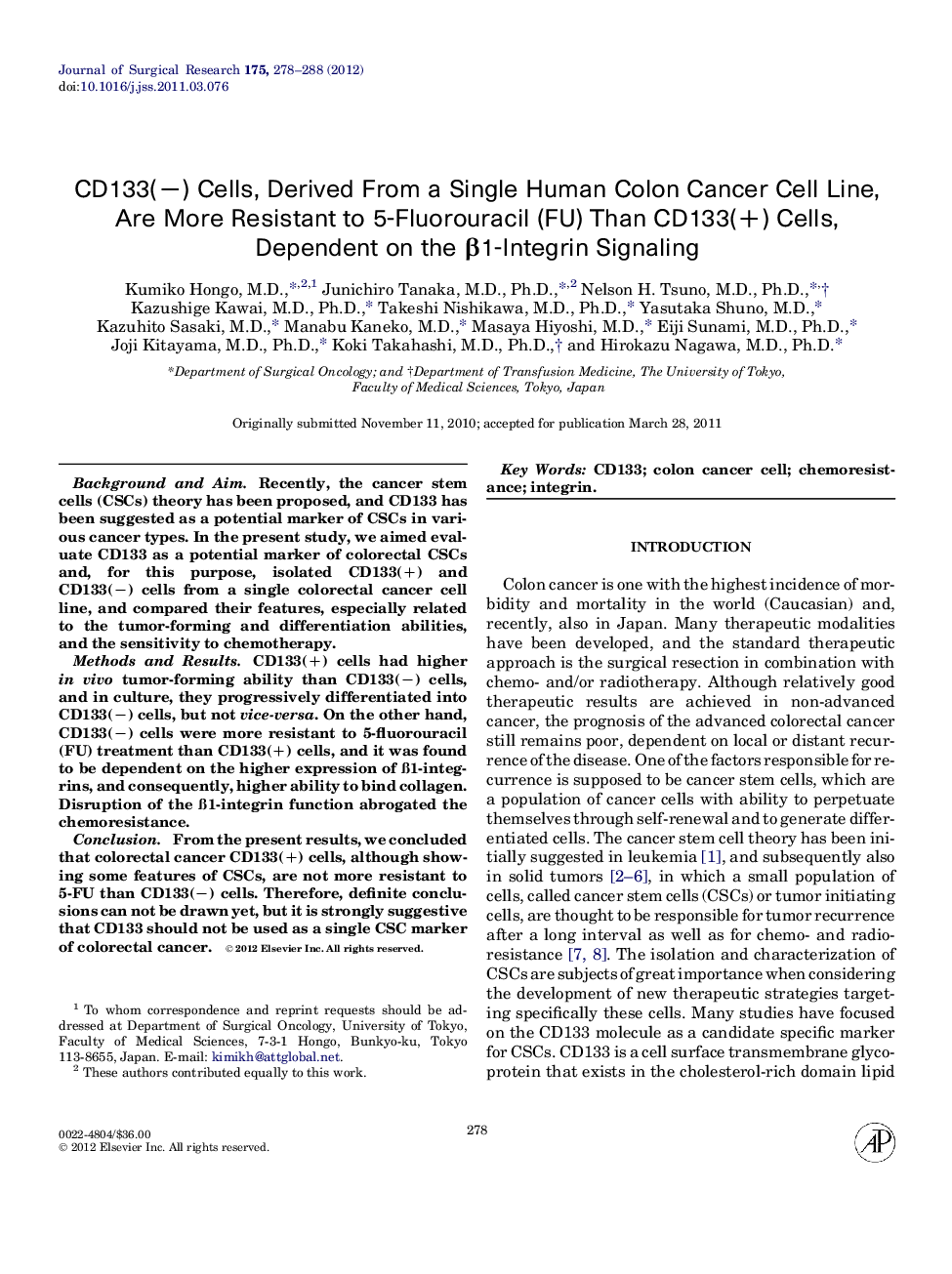| Article ID | Journal | Published Year | Pages | File Type |
|---|---|---|---|---|
| 4301457 | Journal of Surgical Research | 2012 | 11 Pages |
Background and AimRecently, the cancer stem cells (CSCs) theory has been proposed, and CD133 has been suggested as a potential marker of CSCs in various cancer types. In the present study, we aimed evaluate CD133 as a potential marker of colorectal CSCs and, for this purpose, isolated CD133(+) and CD133(−) cells from a single colorectal cancer cell line, and compared their features, especially related to the tumor-forming and differentiation abilities, and the sensitivity to chemotherapy.Methods and ResultsCD133(+) cells had higher in vivo tumor-forming ability than CD133(−) cells, and in culture, they progressively differentiated into CD133(−) cells, but not vice-versa. On the other hand, CD133(−) cells were more resistant to 5-fluorouracil (FU) treatment than CD133(+) cells, and it was found to be dependent on the higher expression of ß1-integrins, and consequently, higher ability to bind collagen. Disruption of the ß1-integrin function abrogated the chemoresistance.ConclusionFrom the present results, we concluded that colorectal cancer CD133(+) cells, although showing some features of CSCs, are not more resistant to 5-FU than CD133(−) cells. Therefore, definite conclusions can not be drawn yet, but it is strongly suggestive that CD133 should not be used as a single CSC marker of colorectal cancer.
